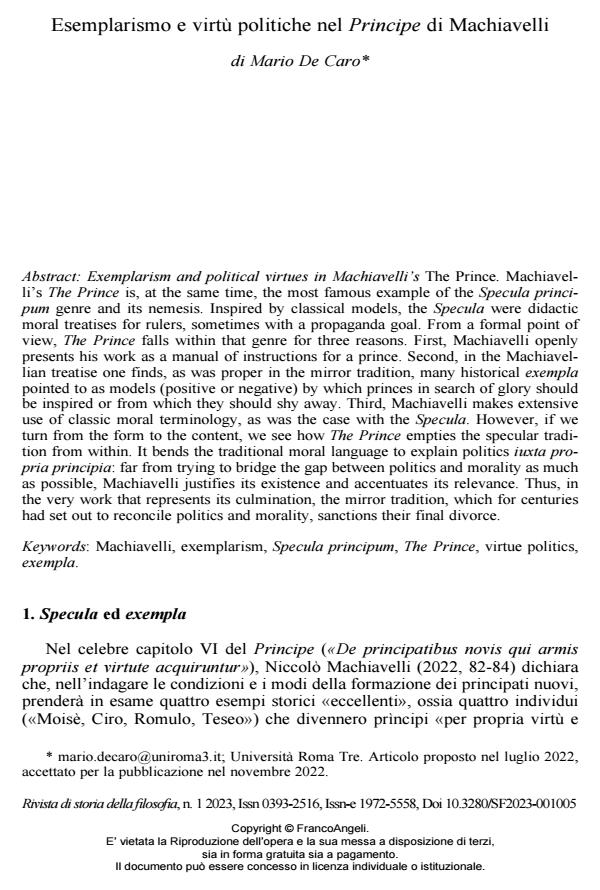Exemplarism and political virtues in Machiavelli’s The Prince.
Journal title RIVISTA DI STORIA DELLA FILOSOFIA
Author/s Mario De Caro
Publishing Year 2023 Issue 2023/1
Language Italian Pages 14 P. 56-69 File size 151 KB
DOI 10.3280/SF2023-001005
DOI is like a bar code for intellectual property: to have more infomation
click here
Below, you can see the article first page
If you want to buy this article in PDF format, you can do it, following the instructions to buy download credits

FrancoAngeli is member of Publishers International Linking Association, Inc (PILA), a not-for-profit association which run the CrossRef service enabling links to and from online scholarly content.
Machiavelli’s The Prince is, at the same time, the most famous example of the Specula principum genre and its nemesis. Inspired by classical models, the Specula were didactic moral treatises for rulers, sometimes with a propaganda goal. From a formal point of view, The Prince falls within that genre for three reasons. First, Machiavelli openly presents his work as a manual of instructions for a prince. Second, in the Machiavellian treatise one finds, as was proper in the mirror tradition, many historical exempla pointed to as models (positive or negative) by which princes in search of glory should be inspired or from which they should shy away. Third, Machiavelli makes extensive use of classic moral terminology, as was the case with the Specula. However, if we turn from the form to the content, we see how The Prince empties the specular tradition from within. It bends the traditional moral language to explain politics iuxta propria principia: far from trying to bridge the gap between politics and morality as much as possible, Machiavelli justifies its existence and accentuates its relevance. Thus, in the very work that represents its culmination, the mirror tradition, which for centuries had set out to reconcile politics and morality, sanctions their final divorce.
Keywords: Machiavelli, exemplarism, Specula principum, The Prince, virtue politics, exempla.
Mario De Caro, Esemplarismo e virtù politiche nel Principe di Machiavelli in "RIVISTA DI STORIA DELLA FILOSOFIA" 1/2023, pp 56-69, DOI: 10.3280/SF2023-001005